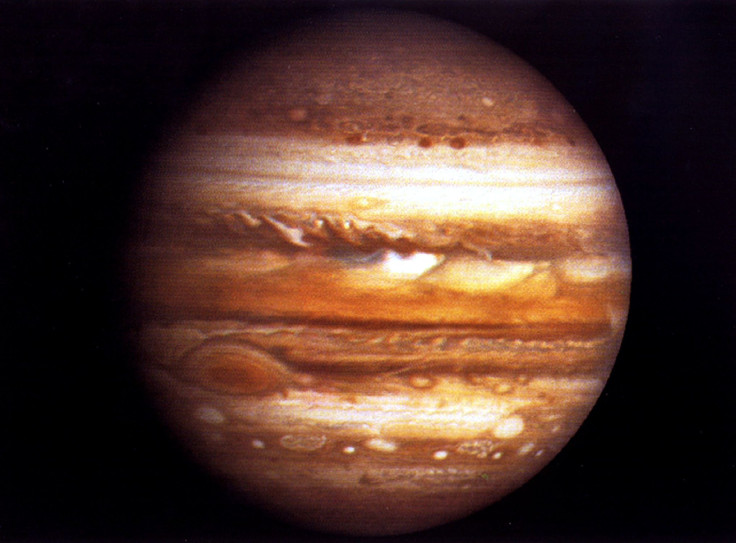Juvenile Jupiter May Have Swept Through Early Solar System Like A Wrecking Ball: Study

A young, wild Jupiter might be responsible for shaping our solar system in a way, which has made it different from the hundreds of other planetary systems in the universe, according to a new study. The latest findings have suggested that Jupiter acted like a "wrecking ball" to clear the inner solar system, which was crowded by a previous generation of planets that were bigger and more numerous.
The study, published Monday in the journal Proceedings of the National Academy of Sciences, said that Jupiter might have destroyed the early inner planets before retreating into its current orbit in the solar system. In addition to explaining how Jupiter paved the way for planets such as Mercury, Venus, Earth and Mars in the solar system, the study also helps better understand the characteristics of Earth and other inner rocky planets.
“Now that we can look at our own solar system in the context of all these other planetary systems, one of the most interesting features is the absence of planets inside the orbit of Mercury,” Gregory Laughlin, a professor at the University of California, Santa Cruz, and the study’s co-author, said in a statement.
As part of the study, the researchers explored the implications of a scenario, proposed for the formation of Jupiter and Saturn. In that scenario, Jupiter first migrated inward toward the sun until the formation of Saturn caused it to reverse its course, and migrate outward to its current position.
The researchers also performed numerical calculations to analyze what would happen if a set of rocky planets with short orbits had formed before Jupiter’s inward migration. According to the researchers, it is possible that those rocky planets would have gradually turned into typical “super-Earths” -- similar to the exoplanets found around other stars in the universe -- before being demolished by gravitational perturbations from Jupiter.
The researchers believe that Jupiter would have swept the inner planets into close, overlapping orbits that might have set off a series of collisions, smashing all the emerging planets into pieces. The resulting debris would have collided into the sun, while a second generation of inner planets would have formed later from the depleted material that was left behind, the researchers said.
“One of the predictions of our theory is that truly Earth-like planets, with solid surfaces and modest atmospheric pressures, are rare,” Laughlin said in the statement.
© Copyright IBTimes 2024. All rights reserved.












